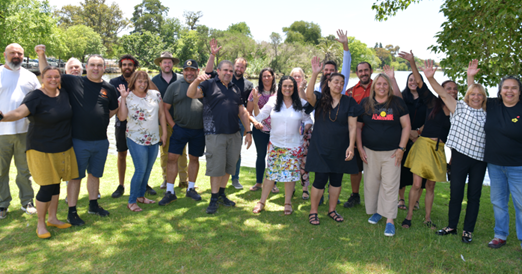In order for the proposed Aboriginal and Torres Strait Islander Voice to have legal certainty, the government must provide a clear, precise, and irreversible definition of what constitutes an Aboriginal. The concept of race implies that humanity is divided into distinct groups based on inherent physical and behavioral differences, but the vast majority of Aboriginal people are no longer a distinct race due to significant crossbreeding and cultural exchange. Therefore, any constitutional amendment must have a specific definition of Aboriginality to avoid ambiguity and ensure legal certainty.
Currently, Australian citizens can vote in elections because they are on the electoral roll, which requires proof of Australian citizenship through a certificate from births deaths and marriages or a citizenship certificate obtained through a naturalization process. This process ensures legal certainty regarding voter eligibility.
However, if the constitutional amendment for the Voice is approved, “Aboriginals” will be designated as a distinct category of citizen within the Constitution, and it is essential to have a clear and consistent definition of Aboriginality to ensure legal certainty and fairness in the electoral process. Legal historian John McCorquodale found over 67 different definitions of Aboriginal people in legislation, so any definition of Aboriginality must be included and defined within the Constitution.
The three-part definition currently used to establish Aboriginal identity relies on self-identification and acceptance by the Aboriginal community, but even the High Court has advised that this definition can expand and contract depending on circumstances. To ensure legal certainty, it is crucial to have a clear and consistent definition that can be legally verified. Without proper certification, individuals should not be able to vote or stand for election, even if they identify as Aboriginal.
The challenge is that establishing Aboriginal descent can be complicated, and without proper documentation, individuals should not be able to register as Aboriginal voters. It is estimated that over 30% of those identifying as Aboriginal may not meet the three-part test requirements, and there are concerns about the prevalence of “fake” Aboriginals.
Therefore, a precise definition of Aboriginality must be established before changing the Constitution to avoid ambiguity, ensure fairness in the electoral process and ensure that the Voice is genuinely voted for by verified Aboriginal people and those elected are verified Aboriginal people.

